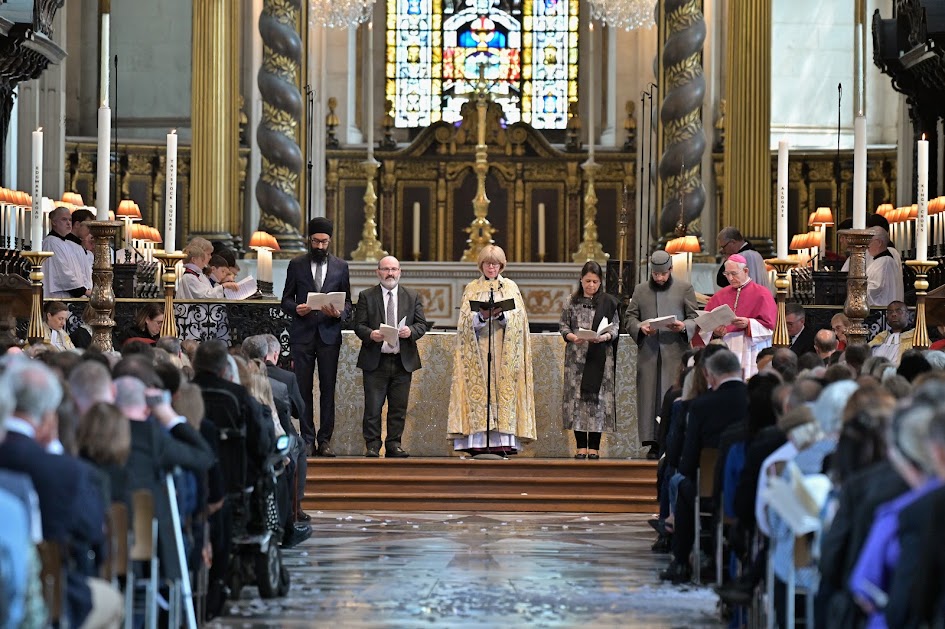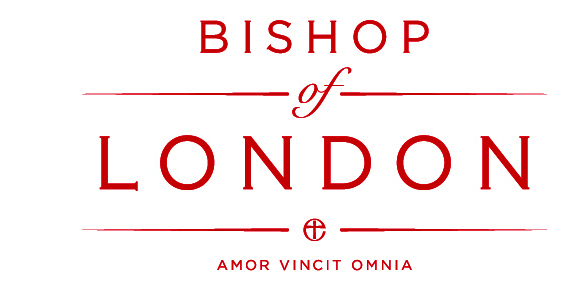
Bishop of London gives the address at the 7/7 Bombings Service of Commemoration
The Bishop of London, Sarah Mullally, gave the address at the Service of Commemoration for the 20th anniversary of the London Bombings at St Paul’s Cathedral this morning.
The service was attended by the families of the 52 victims who lost their lives in the attacks, survivors, emergency service workers and dignitaries.
Bishop Sarah made the following remarks in her address:
God is our hope and strength: a very present help in trouble. May I speak in the name of God, Father Son and Holy Spirit. Amen.
In this service we have heard many beautiful, strong and heart-felt words. Words which have sought to capture the richness of this city and its cultures. Words which have celebrated difference and diversity as the profound gifts that they are. Words which have reminded us of the miracle of being human and being together and having the collective desire and capacity to work for a better world. Words which have gone some way towards expressing the immeasurable loss, grief and pain experienced by so many here. Some way towards it – no words can ever quite get there.
I don’t want to overload you with too many more words. So I will just focus on one. And that is the word hope.
Hope does not deny the brutality of bereavement. Hope is not a panacea for pain. Hope does not make things as they were before: ‘broken wings don’t always heal to fly’, as somebody once sang.
Yet throughout the history of our world the resilience of the human spirit has witnessed to the possibility of hope in the direst of times: times of sickness, war, genocide, holocaust, natural disaster. People have reached into the depths of themselves, their humanity, their faith – they have reached out to each other in compassion and self-giving and the extraordinary spirit of survival. Time and again the human spirit has risen from the ashes, and the hope which for a time was stifled by horror has begun to breathe again.
The prophet Isaiah tells us: ‘The Lord will comfort all her waste places, and will make her wilderness like Eden, her desert like the garden of the Lord’. Jesus speaks of hope in the face of death: ‘Not one sparrow will fall to the ground unperceived by your Father. And even the hairs of your head are all counted.’
The descriptions we heard of the historic and present-day richness of the four locations where life was decimated, culminated in the reminder that ‘the good which is in Londoners is not erased by hatred or threat but – rather – is fostered to produce a harvest of hope for each generation’.
We have sung and listened to music which speaks of the hope of God’s unwavering presence in the midst of the maelstrom of human chaos; the hope that the souls of those we love are held by heavenly beings who tend, and nurse, and lull them.
Hope has run like a gossamer thread through our time together, intertwining with unspeakable pain, horror, brokenness and the ache of unrelieved sorrow. Hope is tentatively yet truly present alongside the deep sadness. The musician Nick Cave, living through profound loss after the death of two of his sons, has said ‘Hope is optimism with a broken heart’[. In the face of tragedy, optimism fails. But hope presents itself as a survival tool for the tenacious spirit that is in us all.
In a recent article on hope the writer Eve Poole talks about hope as an attitude; hope as attention; hope as a posture or orientation, not just an emotion. It is something we choose to do, sometimes in spite of what we see around us. It is, she says, a ‘refusal to despair’ and it is about ‘loving the future, in spite of it all’. Hope is an act of resistance.
In the face of devastating loss it is hard to orientate ourselves to the future, let alone learn to love the future again. Perhaps you have done that, over the past twenty years. Perhaps you are still struggling to do it. Even when we learn to love the future again, there are days when hope feels distant. It takes practice.
Eve Poole references in her writing a favourite poem of mine by Emily Dickinson: ‘Hope is the thing with feathers’. Reflecting on those words Eve writes: ‘hope is the thing with feathers, not wings; it is a fledgling that may need to be coaxed out, and it needs to grow’. She talks about the need to develop our ‘wing-strength’. That’s hard.
My prayer for you all – those who lost loved ones in the bombings, those who survived but are by no means unscathed, those who responded in the moment and the weeks and months since, and those who are committed to working for peace, healing and an end to acts of violence – my prayer for us all is that we may practice living in hope, learn to love the future, strive for reconciliation and peace, and that as our wings strengthen we may know that underneath us and all we love in this life and eternity, are the everlasting arms of the God who brings hope.
Amen.

